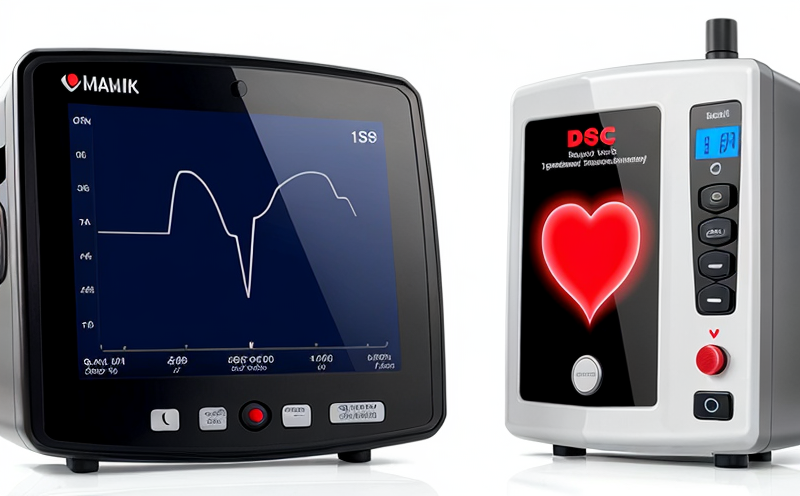ISO 25539-1 Endovascular Prosthesis General Testing
The ISO 25539-1 standard is a cornerstone in the medical device testing sector, particularly for endovascular prostheses. This international standard provides comprehensive guidelines and test methods to ensure that cardiac and cardiovascular devices meet stringent safety and performance requirements. Compliance with this standard is crucial for manufacturers aiming to market their products globally.
Endovascular prostheses are intricate medical devices designed to be introduced into the circulatory system through minimally invasive procedures, often addressing critical issues such as blocked or damaged blood vessels. The testing methods outlined in ISO 25539-1 ensure that these devices can withstand the rigors of deployment and function reliably under expected conditions. This includes evaluating biocompatibility, mechanical properties, sterilization efficacy, and resistance to embolism.
The standard is particularly relevant for devices such as stents, vascular grafts, and other prostheses used in procedures like coronary artery bypass grafting (CABG) or carotid endarterectomy. By adhering to this standard, manufacturers can ensure their products are safe and effective, thus meeting regulatory requirements and gaining market acceptance.
The testing process involves a series of rigorous evaluations that simulate real-world conditions. These tests help identify potential weaknesses in the design and manufacturing processes, ensuring high-quality devices reach patients. The scope of ISO 25539-1 covers various aspects including:
- Material compatibility
- Mechanical strength under stress
- Corrosion resistance
- Biocompatibility assessment
- Evaluation of sterilization methods
- Performance in simulated physiological environments
The detailed methodology ensures that every aspect of the device is thoroughly examined, from initial design to final product. This comprehensive approach enhances confidence in the safety and efficacy of endovascular prostheses.
Scope and Methodology: The testing process involves several key steps designed to evaluate different aspects of the prosthesis:
| Aspect | Description |
|---|---|
| Material Compatibility | Evaluating the biocompatibility and interaction between materials used in the device and body tissues. |
| Mechanical Strength Under Stress | Testing resistance to mechanical stress during deployment and use. |
| Corrosion Resistance | Evaluating potential corrosion issues that could affect device integrity over time. |
| Biocompatibility Assessment | Ensuring the device does not cause adverse reactions in the patient's body. |
| Evaluation of Sterilization Methods | Confirming the effectiveness of sterilization processes to eliminate pathogens without compromising the integrity of the device. |
| Performance in Simulated Physiological Environments | Testing how the device behaves under conditions similar to those found within the human body. |
The testing process is not only about ensuring that a single product meets safety and performance criteria but also about providing reliable data that can be used for continuous improvement. This iterative approach ensures that any shortcomings are identified early in the development cycle, allowing manufacturers to refine their designs before full-scale production.
Compliance with ISO 25539-1 is essential not only for regulatory approval but also for maintaining a competitive edge in an increasingly stringent global market. By adhering to this standard, medical device companies can demonstrate their commitment to quality and patient safety, thereby enhancing trust among healthcare providers and patients.
Eurolab Advantages
At Eurolab, we pride ourselves on offering unparalleled expertise in the field of ISO 25539-1 testing. Our team comprises experienced professionals who are well-versed in the nuances of this standard and its application to cardiac and cardiovascular devices.
We utilize state-of-the-art equipment and facilities that are meticulously maintained to ensure accuracy and reliability in our test results. This enables us to provide clients with comprehensive, actionable data that can be used for product development and regulatory submissions.
Our commitment to quality is reflected in the rigorous training of our personnel and the continuous updating of our testing protocols to align with the latest international standards. This ensures that we are always at the forefront of medical device testing technology.
Furthermore, Eurolab offers a range of additional services that complement ISO 25539-1 testing, including:
- Comprehensive consultancy services
- Expert witness testimony
- Training and certification programs
- Customized test procedures tailored to specific client needs
By leveraging these additional resources, Eurolab provides a holistic approach to medical device testing, ensuring that our clients are well-equipped to navigate the complexities of regulatory compliance.
Why Choose This Test
The ISO 25539-1 test is an indispensable tool for manufacturers and developers in the cardiac and cardiovascular device sector. By conducting this test, companies can:
- Earn credibility with regulatory bodies and healthcare providers
- Demonstrate a commitment to quality and patient safety
- Ensure compliance with international standards
- Gain competitive advantage by meeting stringent industry requirements
- Avoid costly rework or product recalls due to non-compliance issues
- Promote trust among stakeholders, including patients, healthcare professionals, and investors
The test results provide critical insights into the performance and safety of endovascular prostheses. These data points are essential for continuous improvement and innovation in medical device design.
Moreover, ISO 25539-1 testing offers a robust framework for addressing potential issues early in the development process. This proactive approach helps ensure that products meet not only current standards but also anticipate future regulatory changes.





